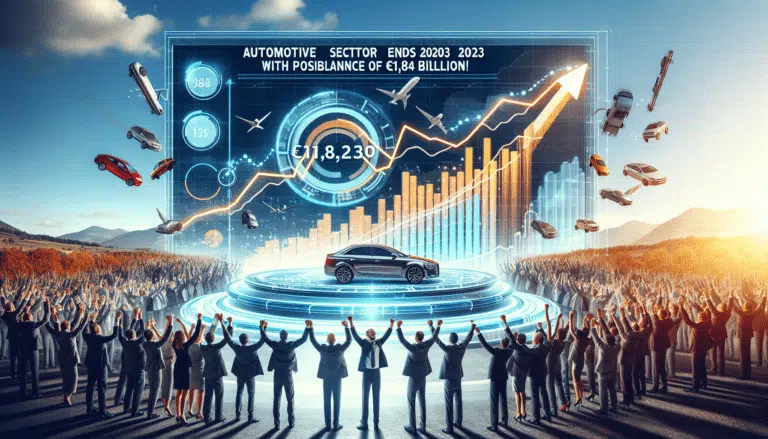The evolution of fuel savings in recent years

In recent years, the evolution of fuel savings has been a topic of great relevance, driven by the growing concern for the environment and the need to reduce costs in a fluctuating economic context. Through the implementation of new technologies and more sustainable driving strategies, it has been possible not only to decrease the consumption of fossil fuels but also to improve the energy efficiency of vehicles. From innovations in automotive machinery to changes in mobility habits, various initiatives are shaping the future of the transportation sector, making energy savings a clearly defined and achievable goal.
In recent years, fuel savings have become profoundly important due to the constant increase in fossil fuel prices and the growing concern for the environment. Various technologies and innovations have emerged to improve energy efficiency in the transportation sector, leading to a notable reduction in fuel consumption and, consequently, a decrease in environmental impact. This article explores the main factors that have contributed to the evolution of fuel savings, as well as current trends and future prospects.
The impact of technology on fuel consumption
One of the most important factors in the evolution of fuel savings has been the development of more efficient technologies. Over the years, vehicle manufacturers have introduced improvements in both internal combustion engines and electric vehicles. For example, the implementation of electronic injection systems has allowed for better fuel combustion, resulting in more efficient performance. Furthermore, the arrival of hybrid and electric vehicles has marked a drastic change in the way consumers approach fuel usage, offering alternatives that significantly reduce consumption.
Fluctuations in fuel prices
Recent history has been marked by fluctuations in gasoline and diesel prices. In mid-2020, gasoline prices experienced a significant drop due to the Coronavirus pandemic, reaching very low levels. However, starting from late 2020, prices began to rise again, reaching record levels in 2021. This increase has made consumers more aware of their fuel spending and led them to seek ways to optimize their consumption. The practice of driving more efficiently, along with the adoption of savings technologies, has become essential for many drivers.
Responsible driving practices
Responsible driving practices have also contributed to fuel savings in the last decade. Currently, methods such as smooth driving and reducing the use of air conditioning are taught, which can significantly decrease fuel consumption. For example, maintaining a constant speed on the highway and avoiding sudden accelerations are effective techniques for maximizing efficiency. Various resources, such as expert tips, provide information on how drivers can optimize their vehicles’ performance while saving on fuel.
The promotion of biofuels and alternative energies
In recent years, there has been a growing interest in the use of biofuels and other alternative energies as a way to reduce fuel costs and environmental impact. Biofuels, derived from renewable sources, are being increasingly used in the automotive sector. Additionally, research and development of alternative fuels and renewable energy technologies continue to advance, creating new opportunities for fuel savings and the mitigation of harmful emissions. This article details the advantages of using biofuels over fossil fuels in terms of economy and sustainability.
The influence of government policies
Government policies have played a crucial role in the evolution of fuel savings. Initiatives to incentivize the use of electric vehicles, such as subsidies and tax benefits, have encouraged their adoption. Moreover, emissions regulations have led manufacturers to develop increasingly efficient and less polluting vehicles. The promotion of public transportation and sustainable mobility alternatives has also positively influenced the reduction of fuel consumption.
The future of fuel savings
Looking ahead, the evolution of fuel savings is expected to continue advancing as technology and environmental awareness develop further. The mass adoption of electric vehicles, along with advancements in charging infrastructures, promises a radical shift in the way we transport ourselves. At the same time, strategies like carpooling and telecommuting are trends that can contribute to an even greater reduction in fuel usage. Investment in research and development remains crucial for finding innovative solutions that improve energy efficiency and reduce environmental impact.
Tips for efficient fuel consumption
Implementing simple changes in daily routines can make a significant difference in fuel economy. Some tips include regularly checking tire pressure, maintaining proper vehicle maintenance, and limiting the use of air conditioning during warm seasons. For more information on efficient driving strategies, an article discussing the use of air conditioning in vehicles and how to reduce fuel consumption can be accessed here.
In summary, fuel savings have evolved through a combination of advanced technology, effective government policies, and a rise in public awareness regarding sustainability. The pursuit of responsible practices in fuel usage is essential to ensure a more sustainable future.
In recent years, there has been a significant transformation in the way consumers and companies manage fuel consumption. The implementation of advanced technologies and the adoption of more sustainable practices have been key in this evolution, allowing for a reduction in environmental impact and the costs associated with the use of fossil fuels.
In response to the growing concern about climate change and the constant rise in gasoline and diesel prices, many automotive companies have launched new models of vehicles that use biofuels and other alternative energy sources. These innovations have led to a notable improvement in fuel efficiency, enabling users to enjoy substantial savings in their transportation expenses.
Moreover, education and awareness about the importance of fuel savings have been promoted. Public campaigns have emphasized the need to adopt more responsible driving habits, which not only contribute to reducing expenses but also help decrease pollutant emissions.
The role of technology in optimizing fuel consumption cannot be underestimated. Tools such as route planning apps or smart navigation systems have allowed drivers to minimize travel time and, therefore, fuel usage. The integration of these systems in modern vehicles has made energy efficiency more accessible than ever.
As we move towards a more sustainable future, it is evident that the evolution of fuel savings is at the center of both individual and corporate strategies, highlighting a shift towards a mobility model that respects the environment and promotes resource economy.




